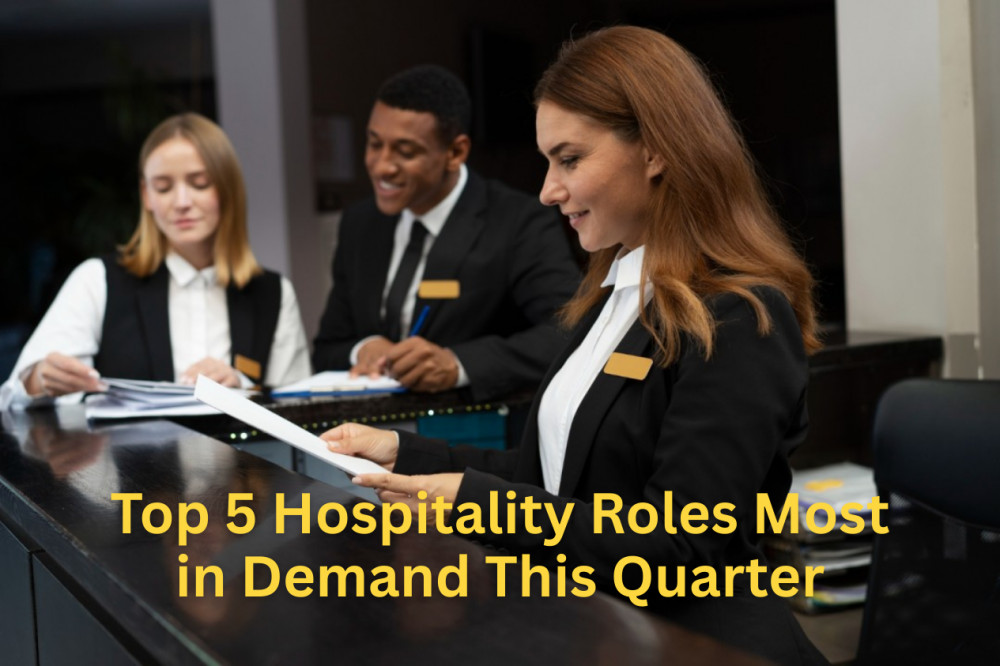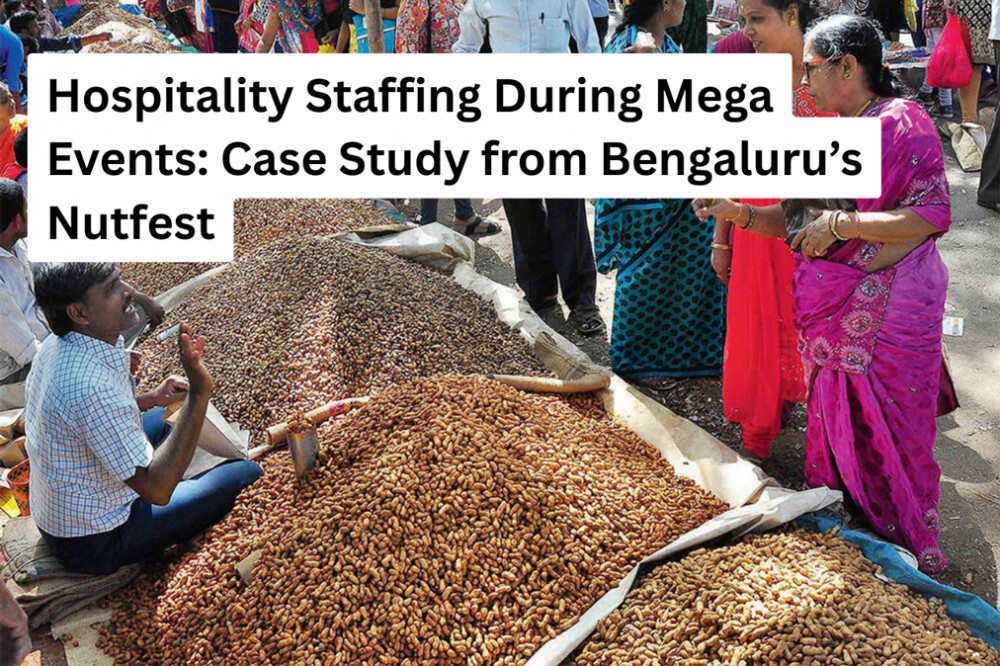
Retention Strategies for Chefs & Frontline Staff During Festivals

Festivals in India are a burst of lights, tastes, and happiness, but they also challenge food & hospitality professionals with the increased demand for service. Restaurants, hotels, and caterers experience heightened demand due to more large Diwali orders and Christmas brunches, as well as New Year's events. For management, the pressure is no longer just about customer satisfaction but also about retaining their chefs, servers, and other front-line employees during their peak operations.
As the talent competition becomes fiercer, retaining your best people during your festive service offers will take on a higher level of importance. Let's examine some of the top F&B brands that are keeping their teams engaged, loyal, and at their peak performance during one of the busiest service periods of the year.
1. Comprehending the Stress Points
Before proceeding into strategies, it is also important to understand the reasons for the drop-in retention rates during the festival season.
- Extended hours and the fatigue of standing all day: Chefs, service workers, and baristas will often work 10–14-hour shifts to keep up with the festive traffic.
- Lack of personal time: Holidays meant to be celebrated with family end up becoming another workday for hospitality people.
- The pressure of expectations and associated stress: Hospitality customers expect everything to be the same, including the same level of service, atmosphere, and plating.
- Jobs that pay better elsewhere: Many seasonal pop-ups, catering companies, or five-star experience chains will pay a temporary higher pay to staff to lure in talent to generate profit through staff quality.
When you position together the fatigue, the emotional toll or stress, the pay incentive, it is no surprise to see attrition happen. Great businesses actively work through proactive processes to address the challenges of stress.
2. Motivators of Recognition and Festive Bonuses
Monetary motivation continues to be one of the strongest motivations. However, retention is not solely about paid employment: it is about feeling like they are valued.
- Performance-based rewards: Offer individualised incentives based on performance or customer feedback scores. Even small bonuses can significantly help team morale.
- Spot recognition: Encourage managers to formally recognise the efforts of their staff, daily, during the busiest peak periods– through a formal shout-out in a team briefing or a small token of appreciation, i.e. meal vouchers.
- Loyalty rewards: Offer a retention bonus for staff who complete the entire festive or peak season, or show their commitment early, which could help decrease those who drop out at the last hour.
Taj Hotels and Social are examples of hospitality operators that found that their staff retention rates improved when they implemented recognition programs along with tangible rewards (e.g. an additional paid time off shift or shopping vouchers post busy festive period).
3. Rotational Scheduling and Mental Wellness
Celebrating demand doesn’t have to equal burnout. Good planning of schedules and mental wellness programs can reduce turnover for your team.
- Rotational time off: Everyone should get some form of personal time off during busy weeks. For example, departments could use a staggered one day off.
- Short, structured breaks: Consider sending employees on short 10-minute breaks to hydrate and/or rest during long shifts. This is especially critical for chefs standing in front of hot stoves for hours.
- Mental wellness check-ins: An increasing number of hotels are partnering with mental health specialists to provide on-call counsellors or group de-stress days during festival schedules.
Some boutique F&B groups even provide “post-festive off-site retreats”- a weekend party for both kitchen and service team to recuperate post-season. These initiatives show you care and appreciate your team beyond just their pay cheque.
4. Upskilling & Growth Opportunities
Retention rates greatly increase when employees envision themselves in the future of the role within the organisation.
- Festive training modules: Why not offer crash courses on festive menu innovation, service personalisation, and guest engagement? This engages the team while providing advancement in professional worth.
- Role rotation: Consider allowing promising staff to engage in new roles during the festive season. For example, perhaps a commis chef can engage in cooking at a live action station, or assuming a server can lead a team for a day. This gives the staff exposure and fosters confidence.
- Internal promotion pipelines: From the outset of the festive period, discuss the effect that if staff perform well under the pressure of the festivals, there is a priority to put them forward for promotion or permanent contracts.
When staff see the festive season as an opportunity to develop and learn rather than a burden, motivation changes tremendously.
5. Open Communication and Team Participation
Being open and inclusive builds the trust that leads to retention.
- Communicate in advance: Let your team know ahead of time what their expected workloads, schedules, and goals will look like during the holiday season.
- Differentiate them in selecting the plan: Engage with chefs in developing festive food options, or ask servers to come up with plating or decorations. This will make them feel ownership.
- Keep a constant feedback loop: Take time weekly, regardless of whether you are busy or slow, to check in with staff to see where they are at, and to address any issues.
When the team feels engaged in the conversation and involved in the decision-making process, attrition will drop significantly. Staff will begin to no longer feel like it is “management vs. staff;” it will be “one team” focused on a common goal.
6. Forming a Sense of Belonging Culture
The holiday season can often feel lonely for many hospitality team members who might not see family during the holidays. Fostering an internal sense of belonging culture is very important.
- In-house holiday parties: Whether you are celebrating Diwali, Christmas, or New Year’s Eve, we often rush every chance we get in hospitality. Host a quick, small cake cutting, potluck, or treat lunch for the team to enjoy together at the beginning of a shift.
- Family involvement: Invite a team member's family to a small dinner before the Holiday workshops or offer them a discount for the night—it will build employee goodwill that lasts.
- Appreciation walls: Several restaurants today have designated a wall in the restaurant for “staff moments” to reflect on and include pictures, thank-you notes, and accomplishments of the team during the holiday hustle.
Specific small things like this are often more significant in creating motivation in team members and a sense of belonging than some corporate pay incentive.
The Bottom Line
Festivals are when the magic of hospitality comes alive and presents human challenges. Retaining chefs and the frontline, while it may be challenging work to do, is not only about keeping the operation flowing; it's about the people who bring the magic of the festival experience to life.
At Foodism Connect, we believe great food starts with great people. Read on for further insights into the industry, retention guides, and ideas for a better experience.
Related Blogs

The Rise of Boutique Hotels: Recruiting for Experience, Not Size
73 Views

Top 5 Hospitality Roles Most in Demand This Quarter
71 Views

Hospitality Staffing During Mega Events: Case Study from Bengaluru’s Nutfest
86 Views

Festival Hospitality: What Food Events Teach About Guest Management & Staffing
194 Views

Little Guests, Big Smiles: How Hotels Design Family-Friendly Experiences
171 Views